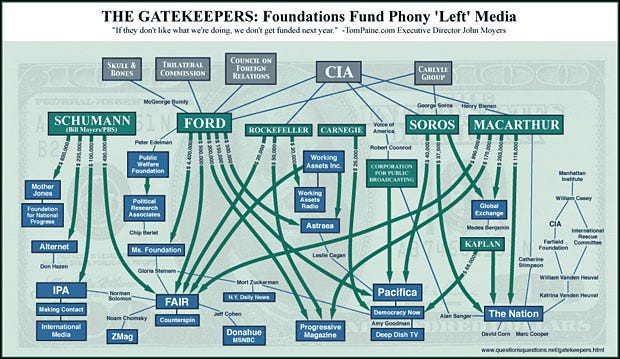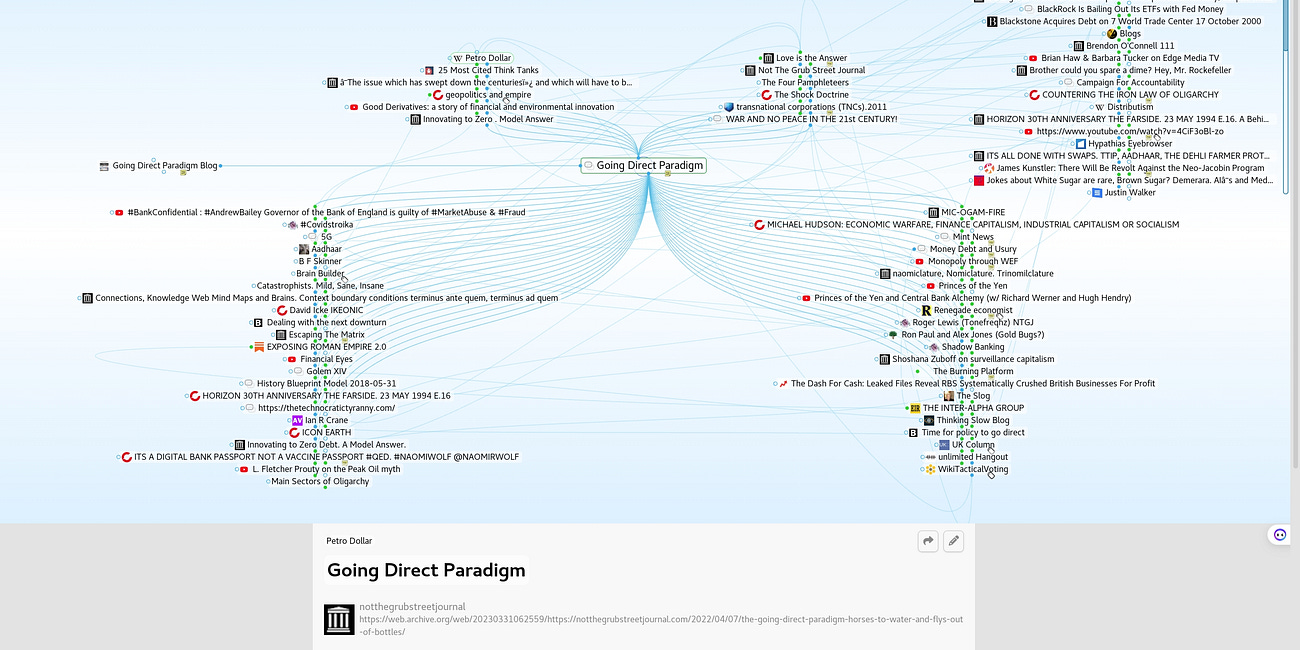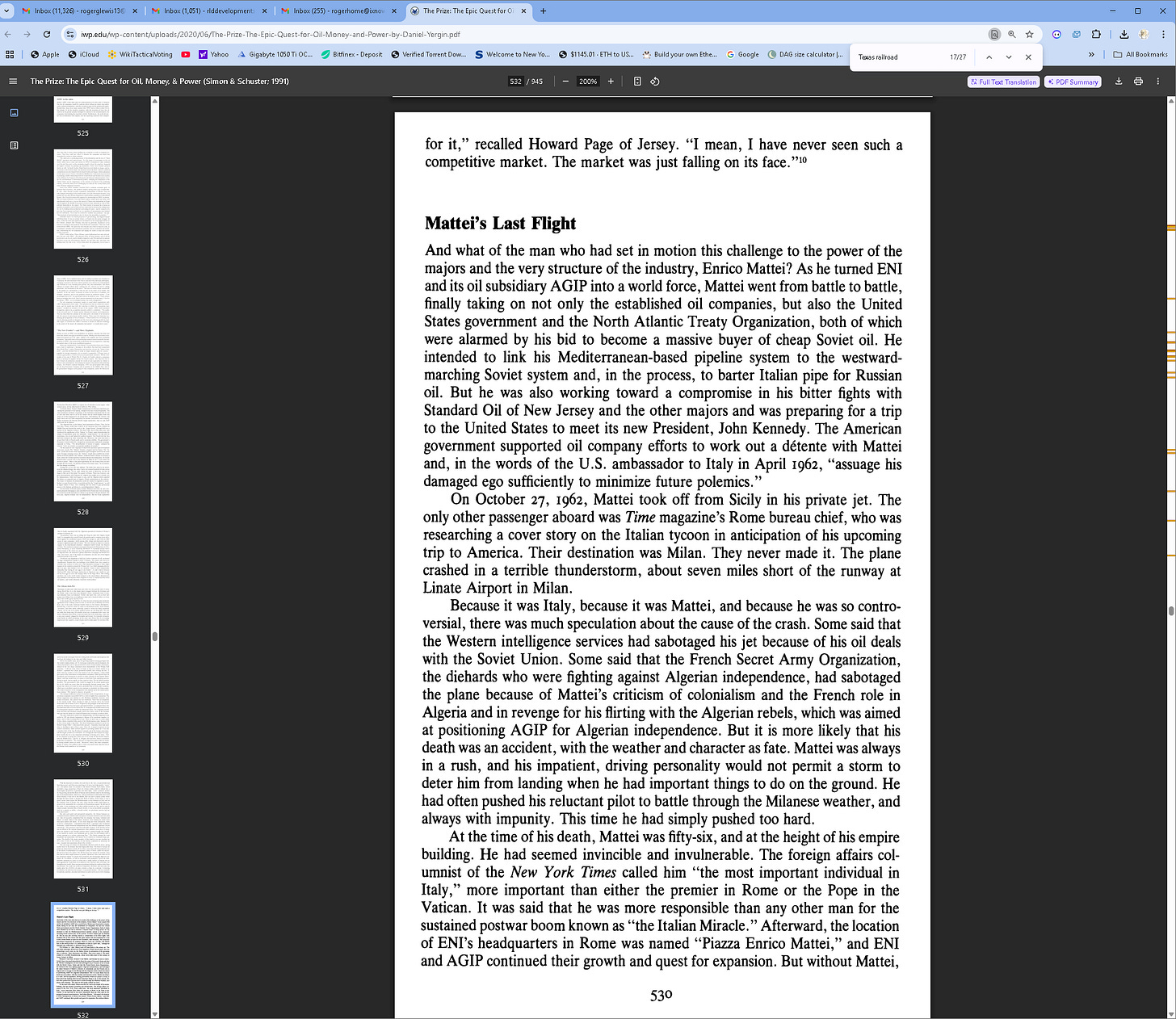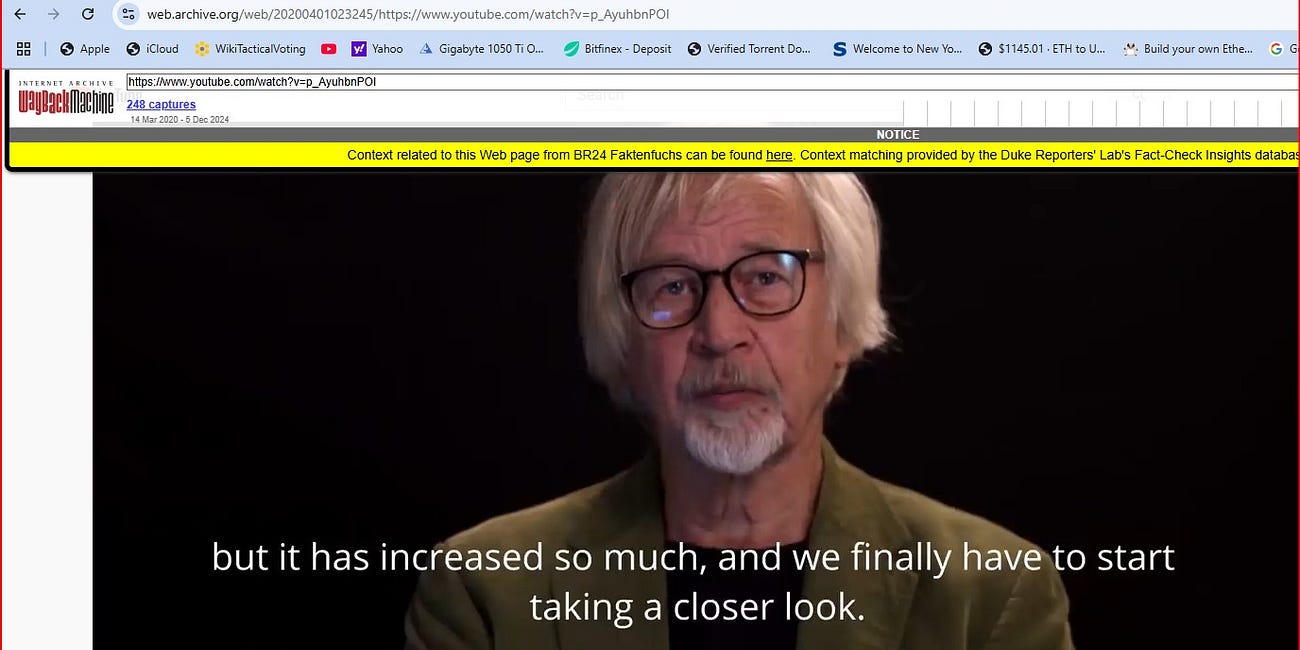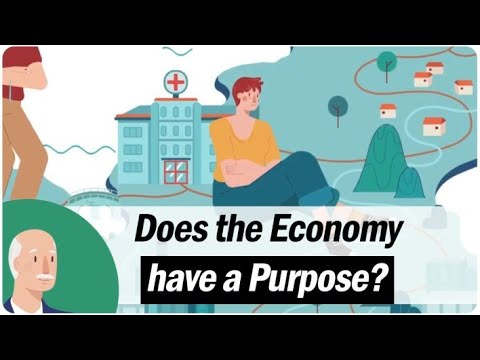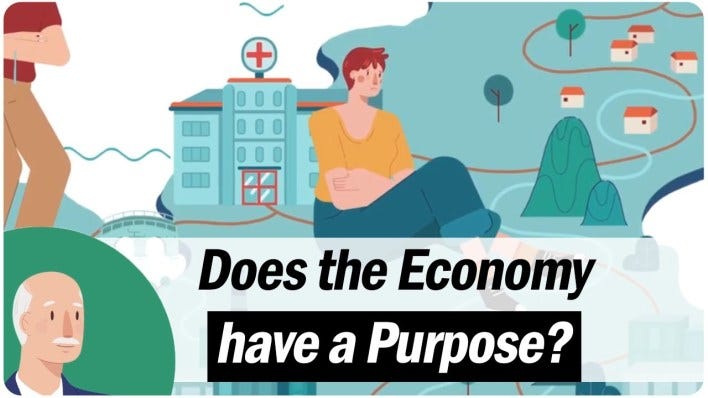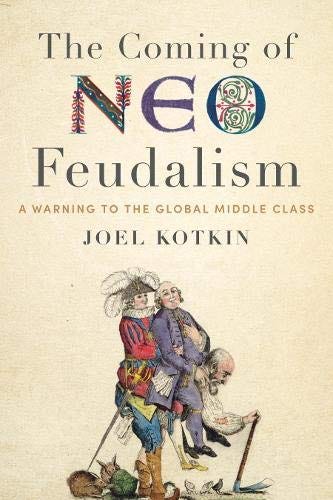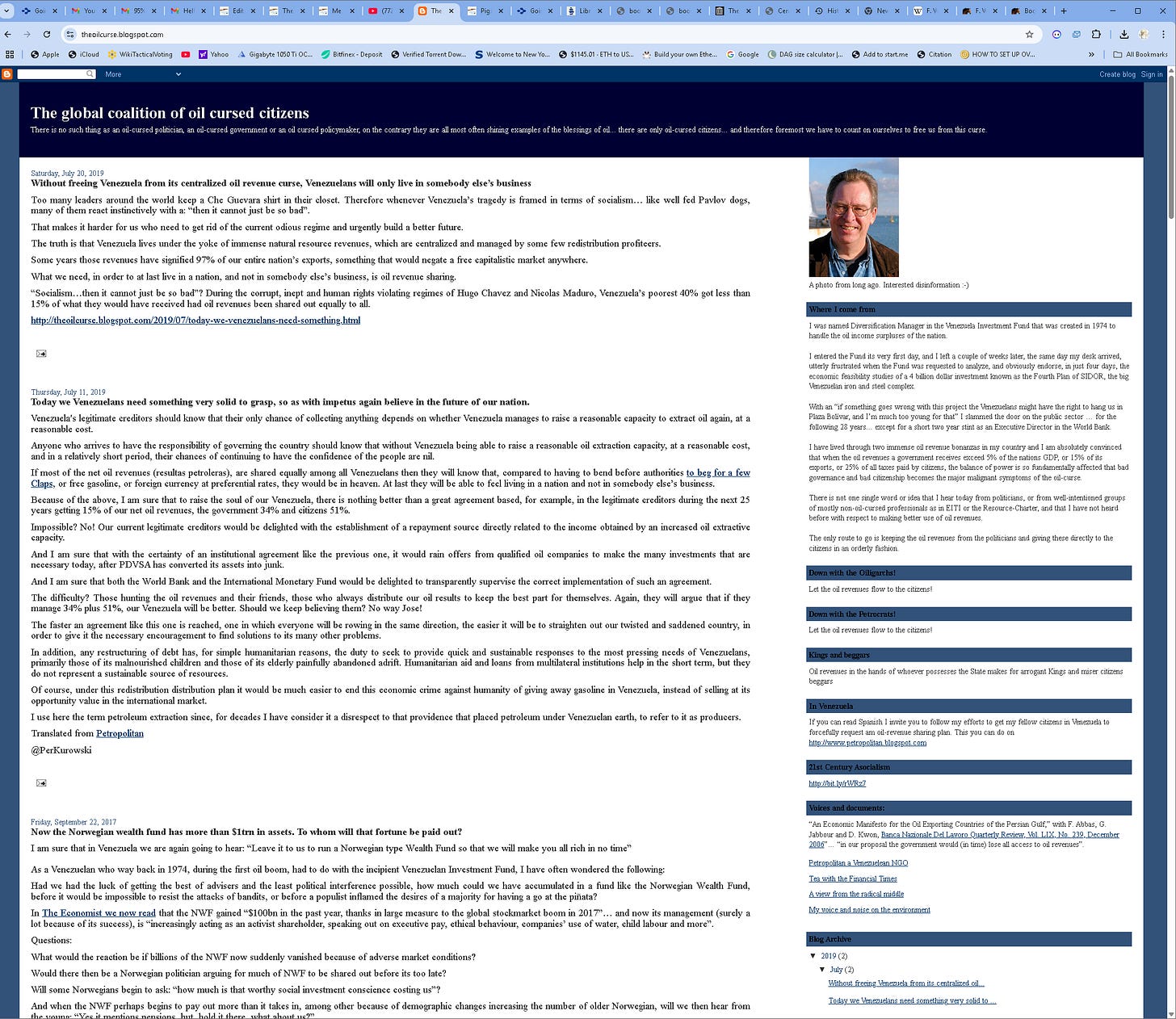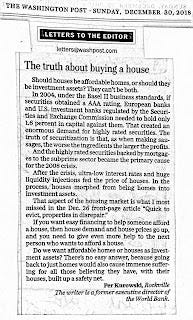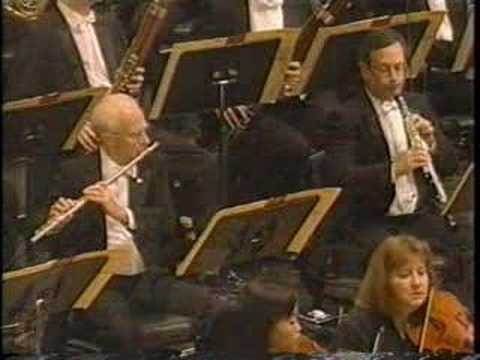Back to the heart of the western tradition
In philosophy, free will v determinism, Paramenides v Hericlitus, Timonism v cynicism. HAMILTON: Had a noted business-financial bias; believed in original sin—the natural depravity of human beings, therefore strong controls called for; he had authoritarian inclinations and an entrepreneurial spirit. JEFFERSON: He had an agricultural bias; he also believed in human perfectibility and was wedded to ideas of reason and science; he therefore mistrusted government because of his belief in human goodness.“Ceterum censeo Carthaginem esse delendam”, nihil sub sole novum.
Rockerfellers v Rothschilds Aristotelians v Platonists Left V Right . In the Heuristics of Going Direct it’s UP and Down and RIch and Poor not Left and Right.
http://www.williamengdahl.com/books.php
Keeping oil prices high
“Using the evolving and increasingly sophisticated econometric tools, they described and ‘mapped’ the global economy and its total energy requirements well into the future. Having engineered the transformation of the economy of the United States from coal-driven rail to oil-driven transport, the Standard Oil group, their allies at Shell, and what was then called Anglo-Iranian Oil Company (later British Petroleum) became increasingly concerned that their carefully constructed edifice of world oil domination might collapse if too much oil were to suddenly flood the market.
Then, in 1948, the Rockefeller Standard Oil companies within their Saudi Arabian-based company, ARAMCO — Arab-American Oil Company — discovered the world’s largest-ever oil field at Ghawar. That one gargantuan field produced at a staggering rate of five million barrels per day and, despite claims to the contrary, continued to do so more than half a century later. By 2005, Ghawar had produced 55 billion barrels of oil, dwarfing every previous oil discovery in the world. The discovery of Ghawar oil field changed the world of oil overnight, and set the stage for the strategy of making the oil-rich USA oil import-dependent.
It was, however, far from the only giant new oil discovery at that time. Ghawar was followed in 1953 by discovery of the giant Rumalia oil field in Iraq. Fortunately for the power calculus of Rockefeller’s American oil majors and their closely allied British oil companies, Shell and AngloIranian (BP), most major new giant fields were under the Rockefellers’ direct control.
With the immense new fields of Saudi Arabia, Iraq and the Middle East under their control, the US oil majors around the Rockefeller group decided it would be far better to use their ultra-cheap Mideast oil instead of the domestic US supply which often cost considerably more to extract and was frequently in the hands of smaller independent oil companies.
In the early 1950s, a critical economic consideration was the difference in lifting costs – operating costs: Saudi or other Middle East oil operations typically cost some 400% to 500% less compared with those in West Texas, California or Oklahoma. It cost US-Saudi ARAMCO oil companies about $0.20 to produce a barrel of Saudi oil that they sold to the market in the 1950s for $1.75. Under a special tax arrangement — on the argument of US national security — the US Treasury paid a sum, termed a Foreign Tax Credit, to the Saudi Government to insure the flow of cheap Saudi oil that was, in effect, bankrupting domestic US independent oil producers. The ARAMCO American oil companies got away with paying no taxes either in the US or in Saudi Arabia.
10
“Little wonder that the major oil companies began a concerted drive to flood the domestic US oil market with their cheap Middle East oil, conveniently bankrupting thousands of small and medium-sized independent US oil producers.
Despite all this, however, the Rockefeller oil majors faced a nightmare scenario. Oil was by then the primary energy driving the global economy. In a world where control over oil was the key to global power, they knew that significant non-Anglo-American players, as well as national oil companies not under the Rockefeller thumb, could also discover huge new fields such as Ghawar or Rumalia, thus ending the Anglo-American control of world oil.
A radical new approach to their control of oil became urgent.”
Big Oil finds a new King
“As a first step, the major American and British oil interests concluded that a plausible scientific argument was needed that would propagate the convenient (for them) myth that the world’s petroleum resources were finite and depleting rapidly. For this job, they chose an eccentric petroleum geophysicist from the University of Chicago who was working for Shell Oil in Texas, a man named Marion King Hubbert, or King, as he preferred to be known”.
Diagram of presumed peaking of oil based on idealistic Gauss curve not on empirical measurements of real oil fields.
“Hubbert was asked to deliver a paper to the annual meeting of the American Petroleum Institute in 1956, an event that would become one of the most fateful examples of scientific fabrication in the modern era.”
The Control of Oil on the Going Direct Paradigm Mind Map
Michael L. Chadwick - Global Governance in the Twenty-First Century. An Overview of the Elite Forces Controlling the World Economy
"The powers of financial capitalism had another far-reaching aim, nothing less than to create a world system of financial control in private hands able to dominate the political system of each country and the economy of the world as a whole. This system was to be controlled in a feudalistic fashion by the central banks of the world acting in concert, by secret agreements arrived at in frequent meetings and conferences."
Carroll Quigley "Tragedy and Hope"
"I could hardly believe what I was reading. I sat in the bookstore and read until closing time. I then bought the book and went home where I read almost all night. For the next twenty-five years I traveled throughout the United States, Europe and the Middle East following one lead after another to determine if the incredible words of the professor were really true. While serving as the Editor of a scholarly journal on international affairs, Director of the Center for Global Studies and foreign policy advisor for a key U. S. Senator in Washington, D. C., I conducted over 1000 interviews with influential world leaders, government officials, military generals, intelligence officers, scholars and businessmen, including corporate CEOs and prominent international bankers and investment bankers. I went through over 25,000 books and over 50,000 documents. I learned for myself that the professor was telling the truth.
There really is a "world system of financial control in private hands" that is "able to dominate the political system of each country and the economy of the world." I call this system the World Trade Federation. It is an ultra-secret group of the most powerful men on the earth. They now control every major international institution, every major multinational and transnational corporation both public and private, every major domestic and international banking institution, every central bank, every nation-state on earth, the natural resources on every continent and the people around the world through complicated inter-locking networks that resemble giant spider webs."
Michael Chadwick, Introduction to "Tragedy and Hope"
https://archive.org/details/controlofoil0000blai/page/n5/mode/2up?q=ARAMCO
Page 18
“But the importance of the Middle East is even greater than would be inferred from the published figures on proved reserves. Referring to the “enormous reserves and high producibility of certain oil fields, especially in the Middle East,” Paul H. Frankel, probably the world’s leading petroleum economist, observed: “. . . the reserve figures, proved reserve figures ... I have no doubt, nor does anybody else, are vastly understated.”30 Reporting a conversation on August 3, 1973, with a Saudi official, H. J. Johnston of Aramco noted: “I told him while it is unlikely we would find any more Ghawars, I thought that Aramco for the foreseeable future would continue to find number of accumulations on order of size of that discovered by Marjan 25, which . . . preliminary estimates indicated contains in excess of 5 billion barrels of oil in place.”31 Along the same lines, Annon M. Burd of Aramco notified J. M. Voss of Caltex of the displeasure of Saudi officials that only slightly more than a third of the “discovered reser¬ voirs” were “developed and producing”:
Page 18
“It has been brought to our attention that for some time now, repre¬ sentatives of the Saudi Arabian government have been critical of Aramco for producing Arabian light crude at such a high rate and Arabian Medium and Heavy at much lower rates. They complain that the Aramco shareholders preferentially lift the most valuable crude and leave the others behind”.
https://archive.org/details/controlofoil0000blai/page/18/mode/2up?q=ARAMCO+texas
There will Be Blood, Trump still Polishing J R Ewings Shoes
·Land Use and Monetary Policy, The New Trifecta. Click to buy its well worth it.
Weekend read – Blood and Oil in the Orient: A 2023 Update
November 10, 2023EditorLeave a commentGo to comments
from Shimshon Bichler and Jonathan Nitzan [1]
The Hamas-Israel War
“The 2023 war between Hamas and Israel elicits many different explanations. As with previous regional hostilities, here too, the pundits and commentators have numerous overlapping processes to draw on – from the struggle between the Zionist and Palestinian national movements, to the deep hostility between the Rabbinate and Islamic churches, to the many conflicts between Israel and Arab/Muslim states, the contentions between the declining superpowers (United States and Russia) and their rising contenders (like China, Iran, Turkey), the rift between western and eastern cultures, and so on.
The experts also highlight the growing importance of local militias – from Jewish settler organizations, to ISIS, Hamas, Islamic Jihad, Hezbollah, the Houthi movement, the Wagner Group and Kadyrovites Chechens – groups that operate under different political, religious and criminal guises, with varying financing and support from local, governmental and international sources to proxy and/or challenge different states. [2]
Our article does not deal with these specificities. Instead of focusing on the particular and unique, we concentrate on the general and universal. Concretely, we argue that the current war between Hamas and Israel shares an important common denominator with prior clashes in the region – namely, that it constitutes an energy conflict and that it correlates with the differential nature of capital accumulation. We coined these two terms in the late 1980s and have studied their underpinnings and implications for the Middle East and beyond ever since. [3] Our purpose in this paper is to highlight our theoretical arguments, update some of our key empirical evidence and show how both the theory and findings apply to the current Hamas-Israel war.
OPEC and the Petro Core
The late 1960s witnessed the emergence of a loose coalition between OPEC, the large oil companies, armament contractors, global construction firms and financial institutions, surrounded by shabby arms dealers, politicians, local militias, terrorist groups and media influencers – all connected, directly and indirectly, to military conflicts and energy crises in the Middle East. We labelled this alliance the ‘Weapondollar-Petrodollar Coalition’.
The uniting force of this coalition is the price of oil. The gyrations of oil prices cause the incomes and profits of coalition members to soar and sink, as their interests diverge and converge with the ebb and flow of regional conflicts and energy crises.
The process ping-pongs, somewhat mechanically, between arms races, open conflicts, energy crises, rising oil prices, increasing state revenues and soaring corporate profit. The Middle East, soaked in multiple tensions, superpower confrontations and mutual suspicions, generates periodic wars at alternating hotspots. These wars help create a sense of ‘energy scarcity’, leading to ‘oil crises’, higher oil prices, rising oil exports and increasing oil-company profit. Soaring oil revenues are in part recycled by financial institutions into global stock and bond markets, but they also help refuel an arms race of imported weapons and military facilities that enrich swarms of international military contractors and construction companies, while equipping potential combatants for yet another round of hostilities and even higher oil prices, so the lethal creation of wealth can start anew.
Let’s unpack these relations, starting with OPEC and the large oil companies. During the 1960s, oil producing countries embarked on a seemingly independent course, limiting oil company concessions, demanding higher royalties and eventually nationalizing their oil resources and facilities. Initially, these developments seemed congruent with the postwar decolonization movement, but soon enough they metamorphosed into a new, post-imperial alliance between the countries and the companies. On the face of it, the large oil oligopolies were stripped of their physical Middle East assets, but their new collaboration with OPEC’s overlords enabled them to achieve something they could have never accomplished on their own: a large, sustainable increase in the price of oil. Between 1972 and 1980, the price of oil, expressed in constant U.S. dollars, rose more than sevenfold.
The merits of this new arrangement were aptly summarized by Saudi oil minister, Sheikh Yamani, in 1969, well before the first ‘oil crisis’:
For our part, we do not want the [oil] majors to lose their power and be forced to abandon their role as a buffer element between the producers and the consumers. We want the present setup to continue as long as possible and at all costs to avoid any disastrous clash of interests which would shake the foundations of the whole oil industry (cited in Barnet 1980: 61).
The arrangement proved that, in matters of income and profit, prices were often far more important than output; or more accurately, that the threat of restricted output helped solidify prices so that profit could rise by even more. To illustrate, the 1979 Islamic revolution in Iran deprived British Petroleum of access to 40 per cent of its global crude supplies; yet, in that year, BP’s profit soared by 296 per cent – more than that of any other major company (Turner 1983: 204; Yergin 1991: 484-487; Fortune 500, 1978, 1979).”
Profit warning: there will be blood
December 11, 2017EditorLeave a commentGo to comments
from Shimshon Bichler and Jonathan Nitzan
We have just updated the charts in our 2014 RWER paper ‘Still About Oil?’, and the picture they portray reads like a capitalist call for arms.
Beginning in the late 1980s, we suggested that, since the late 1960s, the Middle East was greatly influenced by the capitalized power of a Weapondollar-Petrodollar Coalition – a loose coalition comprising the leading oil companies, the OPEC cartel, armament contractors, engineering firms and large financial institutions – whose differential accumulation benefitted from and in turn helped fuel and sustain Middle East ‘energy conflicts’. These conflicts, we argued, reverberated far beyond the region: they affected the ups and downs of global growth, the gyrations of inflation and, in some important respects, the very evolution of the capitalist mode of power. And this impact, it seems to us, is now being called into question.
Over the past few years, oil incomes have crashed. Figure 1 shows that the leading oil firms – approximated by a ‘Petro-Core’ of listed companies – have seen their net profit in constant dollars plummet by over 90 per cent, falling from record highs in the early 2010s to lows last seen in the 1950s. The situation for OPEC is not much better. The organization’s overall petroleum exports, which reached record levels in the early 2010s, are now down by nearly two-thirds. The impact of this decline is greatly exacerbated by the organization’s rapid population growth – roughly 350 per cent over the past 55 years. Taking this latter growth into account means that, on a per capita basis, oil exports, expressed in constant dollars, are now back to where they were in the early 1970s, before the first oil crisis.
Clearly, this situation is unsustainable. To recover, the oil companies and oil exporting countries must see their incomes rise significantly, and as Figure 2 shows, such a recovery, if it were to happen, would require higher oil prices. The chart contrasts the differential earnings per share (EPS) of the global integrated oil sector (i.e., the sector’s EPS relative to the world’s EPS) with the relative price of oil (dollars per barrel deflated by the U.S. CPI) 12 months earlier (since ‘current’ EPS represents earnings recorded over the past year). As we can see, for nearly half a century, the correlation between the two series has been positive, tight and highly persistent (Pearson Coefficient = +0.76). And this pattern continues to hold today: over the past five years, the relative price of oil fell by 55 per cent, while the oil companies’ differential EPS sank by 71 per cent. Note, though, that in the last few months, both series show a small uptick. Could this uptick be the inflection point the Weapondollar-Petrodollar Coalition has been anxiously waiting for?
Bringing Capital Accumulation Back In: The Weapondollar-Petrodollar Coalition – Military Contractors, Oil Companies and Middle-East "Energy Conflicts"
Bringing Capital Accumulation Back In: The Weapondollar-Petrodollar Coalition – Military Contractors, Oil Companies and Middle-East "Energy Conflicts"
Nitzan, Jonathan and Bichler, Shimshon. (1995). Review of International Political Economy. Vol. 2. No. 3, Summer. pp. 446-515.
Blood and Oil in the Orient, Redux
Blood and Oil in the Orient, Redux
Bichler, Shimshon and Nitzan, Jonathan. (2017). Research Note. December. pp. 1-11. (Article - Working Paper; English).
Full Text Available As:
Cover Image
20171200_bn_blood_and_oil_in_the_orient_redux_font.jpg
Download (422kB) | Preview
PDF (Full Text)
20171200_bn_blood_and_oil_in_the_orient_redux.pdf
Download (938kB) | Preview
HTML (Full Text)
20171200_bn_blood_and_oil_in_the_orient_redux_web.htm
Download (92kB)
Alternative Locations
http://www.capitalaspower.com/forum/viewtopic.php?f=6&t=484, https://www.academia.edu/35394154/Oil_and_Blood_in_the_Orient_Redux, https://www.econstor.eu/handle/10419/172198
Abstract or Brief Description
This research note updates selected charts from three previous papers. The new data present a rather startling picture, suggesting that the Middle East – and the global political economy more generally – might face an important crossroads. Our assessment here rests on the analysis of capital as power, or CasP. Beginning in the late 1980s, we suggested that, since the late 1960s, the Middle East was greatly influenced by the capitalized power of a Weapondollar-Petrodollar Coalition – a loose coalition comprising the leading oil companies, the OPEC cartel, armament contractors, engineering firms and large financial institutions – whose differential accumulation benefitted from and in turn helped fuel and sustain Middle East ‘energy conflicts’. These conflicts, we argued, reverberated far beyond the region: they affected the ups and downs of global growth, the gyrations of inflation and, in some important respects, the very evolution of the capitalist mode of power. And this impact, it seems to us, is now being called into question.
Cooperation,GameTheory,12Log2-8, Axelrod,Nowack & Goodwill Hunting
I wrote this note to a friend in October 2016.
Mattei made ENI a powerful company, so much so that Italians called it "the state within the state".[2]
He died in a plane crash in 1962, likely caused by a bomb in the plane, although it has never been established which group might have been responsible for his death.
Mattel's Last Flight And what of the man who had set in motion this challenge to the power of the majors and the very structure of the industry, Enrico Mattei?
Enrico_Mattei#Agip
https://en.wikipedia.org/wiki/Enrico_Mattei#Agip_and_ENI International influence
When it became apparent that the domestic resource base would not be sufficient to meet Italy's growing energy demand, Mattei recognized the need to secure foreign supplies. Driven by his ambition to make ENI a player on par with the Exxons and Totals of the world, Mattei expanded abroad and turned his attention to the international oil markets.[8] He invented, or at least used to tell very often, the story of the little cat:
"A little cat arrives where a few big dogs are eating in a pot. The dogs attack him and toss him away. We Italians are like that little cat: in that pot there is oil for everybody, but someone does not want to let us get close to it."
https://link.springer.com/article/10.1007/s41247-016-0011-y
There are competitive- and resource-based explanations for the phases I have outlined in the results. Phase 1 (from 1947 to 1967) was a period in which there were no apparent limits to U.S. economic expansion. The U.S. was the major market economy as Western Europe and Japan were rebuilding from World War II. Thus, the U.S. had little economic competition. Declining food expenditures (e.g., food = energy) along with cheap and abundant energy via prolific oil fields (e.g., in Texas) enabled the U.S. to control energy prices. Texas oil production actually had to be held back by the Texas Railroad Commission to prevent price collapse. During this time, the U.S. economy built up ‘structural reserves’ in the sense that money became more evenly spread throughout the domestic economy. By all measures in this paper, monetary flows became more evenly distributed during Phase 1.
Pigs Ignorance, Peak Oil and The Road Out of Serfdom
The video discusses the implications of peak oil, energy transitions, and central planning on global economies, highlighting historical contexts, oligarchic control, and the role of technology in societal shifts.
What is the Purpose of the Economy MARCH 16, 2023
What is the Purpose of the Economy? #ArtificialScarcity #TaxFarming #FinanceTailWagsCommunityDog #WagTheDog #Stupidlosophy to #CanofWorms #Aadhaar #
Money does not initiate Economic activity, in all cases, it is an intermediary token or rain check
“Money does not initiate Economic activity, in all cases, it is an intermediary token or rain check which has profound effects on social relations and commerce between individuals and nations, but money is a mere Idea and can be anything we imagine it to be”.
Me and Bobby Mcgee, it will be a long time gone. Feudalism Going to California 4+20 = Neo Feudalism “The Rise of Neo-Feudalism: A Warning to the Global Middle Class” by Joel Kotkin
https://joelkotkin.com/the-coming-of-neo-feudalism/
https://theoilcurse.blogspot.com/
https://subprimeregulations.blogspot.com/
Sunday, December 30, 2018
A letter in Washington Post: Affordable homes or investment assets?
Washington Post: Letters to the Editor December 28
Should houses be affordable homes, or should they be investment assets? They can’t be both.
In 2004, under the Basel II business standards, if securities obtained a AAA rating, European banks and U.S. investment banks regulated by the Securities and Exchange Commission needed to hold only 1.6 percent in capital against them. That created an enormous demand for highly rated securities. The truth of securitization is that, as when making sausages, the worse the ingredients the larger the profits.
And the highly rated securities backed by mortgages to the subprime sector became the primary cause for the 2008 crisis.
After the crisis, ultra-low interest rates and huge liquidity injections fed the price of houses. In the process, houses morphed from being homes into investment assets.
That aspect of the housing market is what I most missed in the Dec. 26 front-page article “Quick to evict, properties in disrepair.”
If you want easy financing to help someone afford a house, then house demand and house prices go up, and you need to give even more help to the next person who wants to afford a house.
Do we want affordable homes or houses as investment assets? There’s no easy answer, because going back to just homes would also cause immense suffering for all those believing they have, with their houses, built up a safety net.
Per Kurowski, Rockville
PS. “The assets assigned the lowest risk, for which bank capital requirements were therefore low, were those that had the most political support…home mortgages” Paul Volcker 2018
PS. "Lower bank capital requirements against residential mortgages allows easier financing that will cause house prices to increase, and so we bureaucrats can get more in property taxes… and everyone’s happy.”
PS. In the Financial Times, May 2006, I asked: Who on earth has decided that the increase in the price of houses is not inflation?
PS. Here a discussion of this subject with ChatGPT - OpenAI
A tweet: If banks are allowed to leverage their equity/capital twice as much with residential mortgages than with loans to small businesses & entrepreneurs, you will get too many mortgages and too few jobs providing the income to service these. It ain’t science!
A tweet: Economy 101: Allowing banks to leverage capital much more with residential mortgages than with business loans will cause: a) increased house prices, b) decreased job opportunities and, consequentially, more children having to live in their parents’ house.
My letters in the Washington Post on bank regulations:
September 6, 2007: Factors in the Financial Storm
June 20, 2008: An Aspect of the Bubble
December 27, 2009: Another 'worst': Faulty bank regulation
January 6, 2012: Handcuffed by a triple-A rating
May 1, 2013: An American approach to banking
December 23, 2014: Let the market rule on risky trades
November 11, 2015: Reverse-mortgaging the future
August 9, 2016: Banks, regulators and risk
April 16, 2017: When banks play it too safe
July 11, 2018: There is another tariff war that is being dangerously ignored.
Pigs Ignorance, Peak Oil and The Road Out of Serfdom
The video discusses the implications of peak oil, energy transitions, and central planning on global economies, highlighting historical contexts, oligarchic control, and the role of technology in societal shifts.
The Manifesto of the Trilateral World Fascist Party.
There is a March 2024 Obituary with the same name as Michael, as his work is pretty much in the room 101 section of the panopticon jailer bot in the custody of Winston Smith it is not possible to triangulate whether or not this important researcher and defender of Liberty has in fact passed away, without fanfare,
A Possible Scenario for the Future ( Written in 1996 sourced in 2007)
In the future, we may see the following scenario unfold as the forces of internationalism seek to bring about a "new Imperial System" that will rival the old Roman Empire. Russia must control the Middle East in order to secure control of this region and the oil fields in the Arab nations. The Arab world will be guided further into the Russian camp. The Arab hatred for the Israelis will be carefully nurtured and promoted. The heated debate over Judea and Samaria will serve as the catalyst for the eventual election of strong conservative forces in the Israeli government. These leaders will take a bold stance both diplomatically and militarily against the Palestinians. The Arab world and Russia will invade the nation of Israel. Russia will cut off oil to the West. There will be a severe crisis in Europe, Japan and the United States and other parts of the world. Anarchy will reign. The people of the world will turn against Israel and demand it surrender to the Russian and Arab forces. The people of the Western world will call for their leaders to end the crisis. The people will be told that the only way to end this terrible conflict will be to accept a system of global governance under the "new Imperial System." The war in the Middle East creates economic chaos throughout the world. The elite face intense pressure from the conflict in the Middle East and they begin to war among themselves. Military conflicts break out all over the world. The international financial, economic and trading systems of the elite financial oligarchy collapse. Every stock market on earth crashes in a single day. Nuclear weapons are launched by various nations and World War III is underway. The horrors of war, pestilence and plague create unbelievable havoc throughout the nations of the earth. Billions of people are slain.
Michael L Chadwick 2007 (1996)
Michael Lloyd Chadwick was a researcher known for his work on the Freemen movement and the Federalist Society. Born on March 23, 1942, he dedicated his career to studying extremist and anti-government groups in the United States.
Back to the beginning Wayback Machine
https://web.archive.org/web/20201029185751/https://notthegrubstreetjournal.com/2016/11/05/the-giant-sucking-sound-a-sharp-intake-of-breath-a-duel-to-the-death-the-new-united-states-republic-1776-2016/
Timonism, The Calvinist strain in Neo Liberal Misanthropy. Zionism, The Money Power Usury and The Petro Dollar. Fall of the Roman Empire 2.0.
https://www.ollswang.com/home/cynicism
But the actual overthrow of both constitutional governments and aristocracies is mostly due to a departure from justice in the actual framework of the constitution. For what starts it in the case of a constitutional government is that it does not contain a good blend of democracy and oligarchy; and in the case of an aristocracy it is the lack of a good blend of those two elements and of virtue, but chiefly of the two elements (I mean popular government and oligarchy), for both constitutional governments and most of the constitutions that are called aristocracies aim at blending these. For this76 is the point of distinction between aristocracies and what are called constitutional governments, and it is owing to this that some of them77 are less and others more stable; for the constitutions inclining more towards oligarchy men call aristocracies and those inclining more to the side of the multitude constitutional governments, owing to which those of the latter sort are more secure than the others, for the greater number is the stronger, and also men are more content when they have an equal amount, whereas the owners of wealthy properties, if the constitution gives them the superior position, [20] seek to behave insolently and to gain money. And speaking broadly, to whichever side the constitution leans, that is the side to which it shifts as either of the two parties increases its own side—a constitutional government shifts to democracy and an aristocracy to oligarchy, or to the opposite extremes, that is, aristocracy to democracy (for the poorer people feeling they are unjustly treated pull it round to the opposite) and constitutional governments to oligarchy (for the only lasting thing is equality in accordance with desert and the possession of what is their own)
1Almost all the other subjects which we intended to treat [20] have now been discussed. There must follow the consideration of the questions, what are the number and the nature of the causes that give rise to revolutions in constitutions, and what are the causes that destroy each form of constitution, and out of what forms into what forms do they usually change, and again what are the safeguards of constitutions in general and of each form in particular, and what are the means by which the safeguarding of each may best be put into effect.2
And we must first assume the starting-point, that many forms of constitution have come into existence with everybody agreeing as to what is just, that is proportionate equality, but failing to attain it (as has also been said before). Thus democracy arose from men's thinking that if they are equal in any respect they are equal absolutely (for they suppose that because they are all alike free they are equal absolutely), oligarchy arose from their assuming that if they are unequal as regards some one thing they are unequal wholly (for being unequal in property they assume that they are unequal absolutely); and then the democrats claim as being equal to participate in all things in equal shares, while the oligarchs as being unequal seek to have a larger share, for a larger share is unequal. All these forms of constitution then have some element of justice, but from an absolute point of view they are erroneous; and owing to this cause, when each of the two parties has not got the share in the constitution which accords with the fundamental assumption that they happen to entertain, faction ensues. And of all men those who excel in virtue would most justifiably stir up faction, though they are least given to doing so; [1301b] [1] for they alone can with the fullest reason be deemed absolutely unequal. And there are some men who being superior in birth claim unequal rights because of this inequality; for persons who have ancestral virtue and wealth behind them are thought to be noble.
For party strife is everywhere due to inequality, where classes that are unequal do not receive a share of power in proportion (for a lifelong monarchy is an unequal feature when it exists among equals); for generally the motive for factious strife is the desire for equality. But equality is of two kinds, numerical equality and equality according to worth—by numerically equal I mean that which is the same and equal in number or dimension, by equal according to worth that which is equal by proportion4; for instance numerically 3 exceeds 2 and 2 exceeds 1 by an equal amount, but by proportion 4 exceeds 2 and 2 exceeds 1 equally, since 2 and 1 are equal parts of 4 and 2, both being halves. But although men agree that the absolutely just is what is according to worth, they disagree (as was said before5) in that some think that if they are equal in something they are wholly equal, and others claim that if they are unequal in something they deserve an unequal share of all things. Owing to this two principal varieties of constitution come into existence, democracy and oligarchy; for noble birth and virtue are found in few men, but the qualifications specified6 in more: [1302a] [1] nowhere are there a hundred men nobly born and good, but there are rich men7 in many places. But for the constitution to be framed absolutely and entirely according to either kind of equality is bad. And this is proved by experience, for not one of the constitutions formed on such lines is permanent. And the cause of this is that it is impossible for some evil not to occur ultimately from the first and initial error that has been made. Hence the proper course is to employ numerical equality in some things and equality according to worth in others. But nevertheless democracy is safer and more free from civil strife than oligarchy; for in oligarchies two kinds of strife spring up, faction between different members of the oligarchy and also faction between the oligarchs and the people, whereas in democracies only strife between the people and the oligarchical party occurs, but party strife between different sections of the people itself does not occur to any degree worth mentioning. And again the government formed of the middle classes is nearer to the people than to the few, and it is the safest of the kinds of constitution mentioned.
The means used to cause revolutions of constitutions are sometimes force and sometimes fraud. Force is employed either when the revolutionary leaders exert compulsion immediately from the start or later on—as indeed the mode of using fraud is also twofold: sometimes the revolutionaries after completely deceiving the people at the first stage alter the constitution with their consent, but then at a later stage retain their hold on it by force against the people's will: for instance, at the time of the Four Hundred,41 they deceived the people by saying that the Persian King would supply money for the war against the Spartans, and after telling them this falsehood endeavored to keep a hold upon the government; but in other cases they both persuade the people at the start and afterwards repeat the persuasion and govern them with their consent.
Plutarch, Of the Three Sorts of Government, Moralia
Plutarch, Of the Three Sorts of Government, Moralia
Crises In Heresy.By Roger G Lewis (2024)
Heresies , skeptical uttered things
usually by Heretics not our type
A black living pest attached to a thought.
properly removed by crushing between
the Thumb and forefinger taking care
To rip the offending critter by the root.
As the blood of its misery congeals
I am reminded of a crown of thorns
breaking the skin but not the will
of a Saviour crucified without cause
#QED












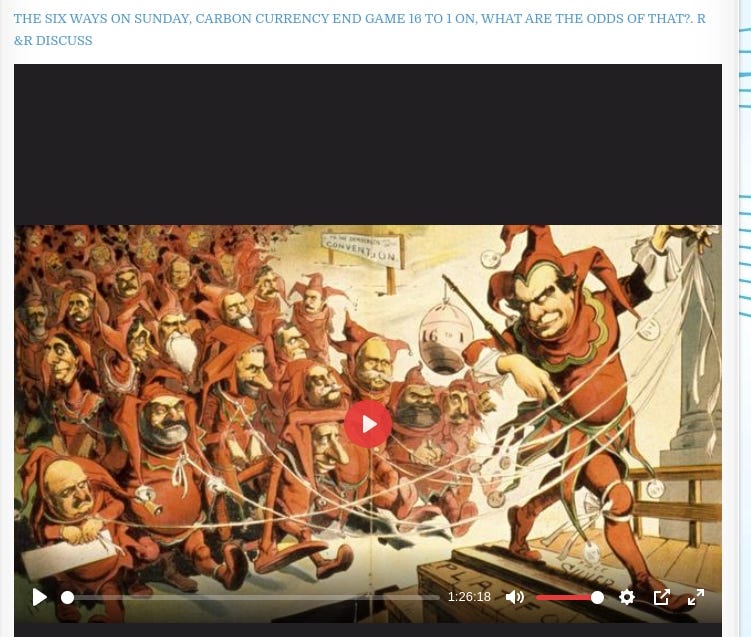
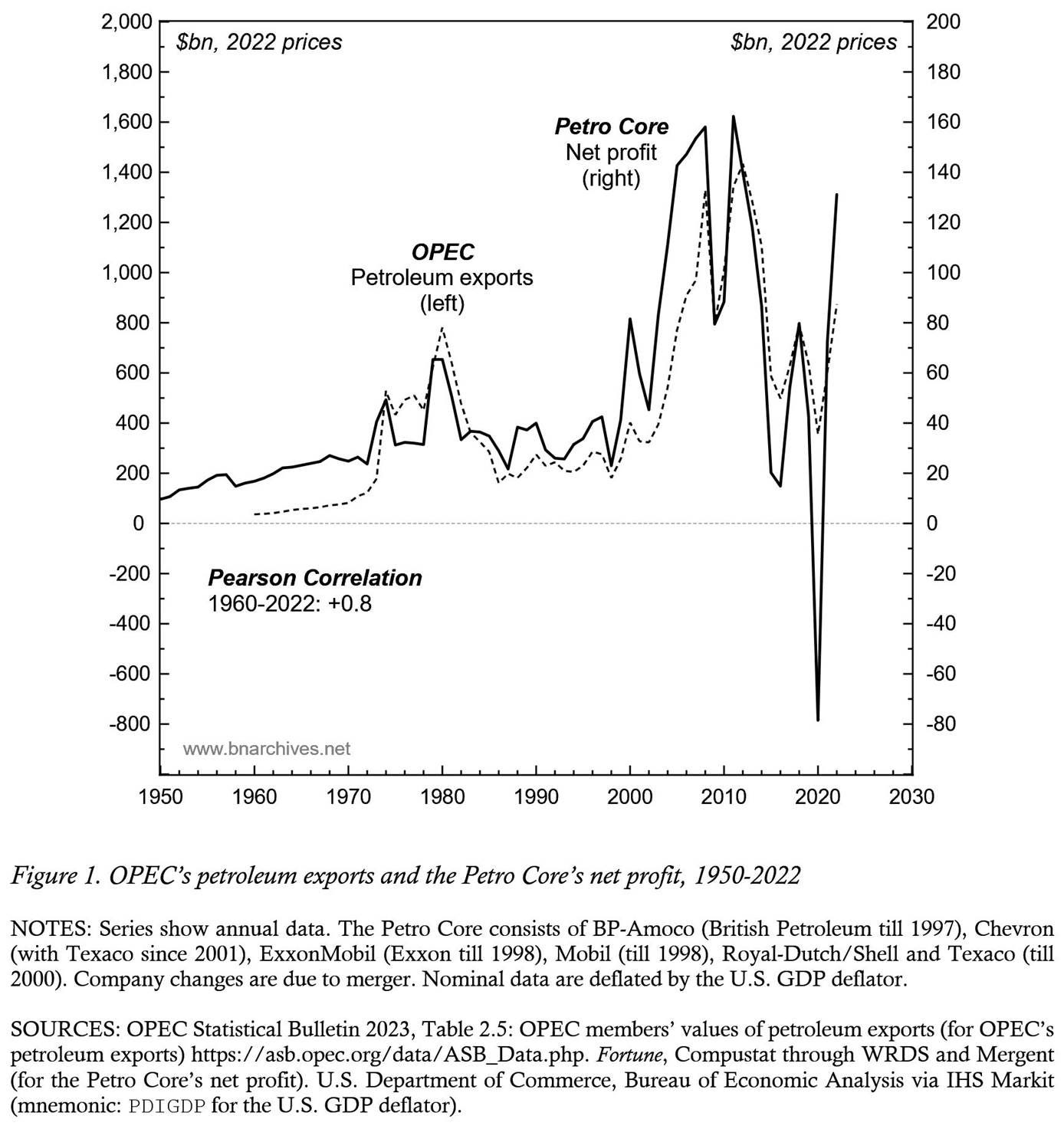
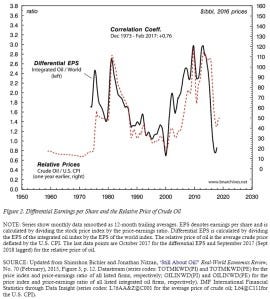
![[thumbnail of 20171200_bn_blood_and_oil_in_the_orient_redux_font.jpg] [thumbnail of 20171200_bn_blood_and_oil_in_the_orient_redux_font.jpg]](https://substackcdn.com/image/fetch/$s_!dSAp!,w_1456,c_limit,f_auto,q_auto:good,fl_progressive:steep/https%3A%2F%2Fsubstack-post-media.s3.amazonaws.com%2Fpublic%2Fimages%2Fa4d16bb8-1c17-49f2-9800-b05c0b83e948_68x52.png)
![[thumbnail of Full Text] [thumbnail of Full Text]](https://substackcdn.com/image/fetch/$s_!zlYi!,w_1456,c_limit,f_auto,q_auto:good,fl_progressive:steep/https%3A%2F%2Fsubstack-post-media.s3.amazonaws.com%2Fpublic%2Fimages%2Fde8c6631-5e9f-493a-8609-0067c2213a72_68x52.png)
![[thumbnail of Full Text] [thumbnail of Full Text]](https://substackcdn.com/image/fetch/$s_!MTBz!,w_1456,c_limit,f_auto,q_auto:good,fl_progressive:steep/https%3A%2F%2Fsubstack-post-media.s3.amazonaws.com%2Fpublic%2Fimages%2Fe118b72a-3ce2-460d-b90c-f7c56aad8885_40x44.png)
